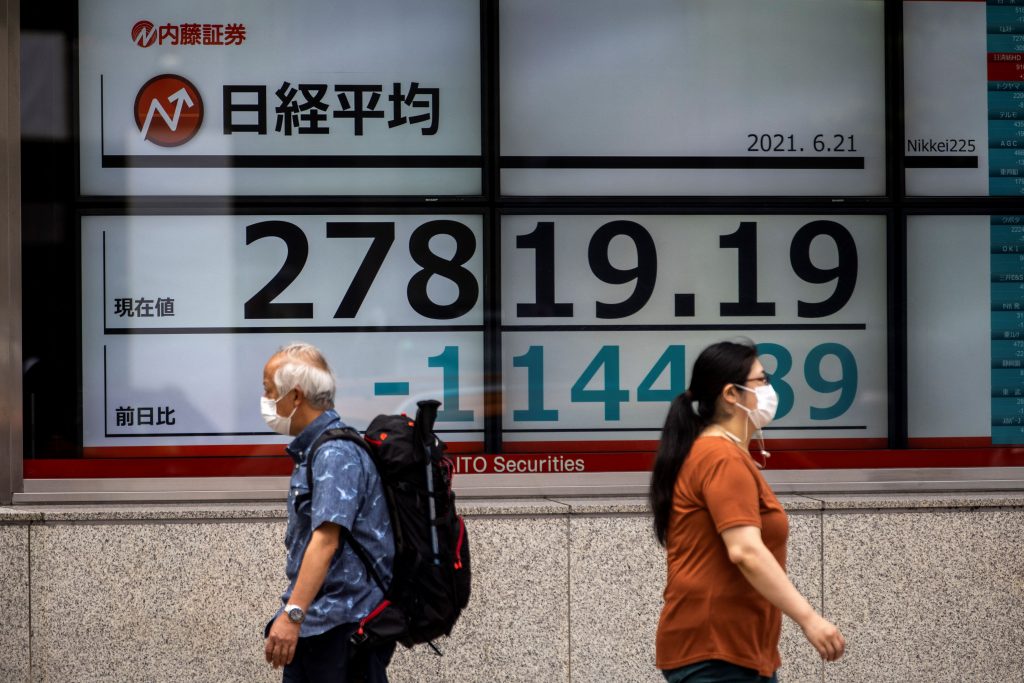
- ARAB NEWS
- 06 Jul 2025

Japanese shares on Wednesday retreated from three-decade peaks hit in the previous session, as investors took profits after a strong rally over the last two weeks and Chinese regulatory concerns dragged SoftBank Group and property shares.
The Nikkei average dropped 0.52% to 30,511.71. On Tuesday, it rose above its February peak to reach 30,795.78, the highest level since August 1990.
In a sign of strong sentiment, however, the Nikkei posted a “bullish candlestick”, which appears when a market closes above its opening level for 12 days in a row.
The broader Topix shed 1.06% to 2,096.39.
Japan’s stock market rally has gathered pace since Sept. 3 when Prime Minister Yoshihide Suga announced his plan to step down, bolstering hopes of a new stimulus package. Vaccine Minister Taro Kono is now seen as a leading candidate in the ruling Liberal Democratic Party’s (LDP) leadership election on Sept 29.
“The market had risen a bit too much too fast … Investors now want to see the outcome of the LDP race. While Kono seems to be viewed as a reformist, it is not entirely clear what kind of economic policies he will adopt,” said Naoya Oshikubo, senior economist at Sumitomo Mitsui Trust Asset Management.
SoftBank Group lost 5.8%, weighed by concerns about its exposure to Alibaba and other Chinese tech firms, as Beijing steps up regulation in the sector.
Property builders were the worst-performing subindex, with a fall of 2.2%. Some analysts attributed the weakness to a spillover from troubles in Chinese real estate shares.
Many Japanese suppliers of Apple slid after the iPhone maker’s shares dropped on Tuesday when it unveiled its iPhone 13.
Murata Manufacturing lost 2.7%, while Nitto Denko dropped 3.3%.
Elsewhere, Park24 slumped 7.9% after the parking lots operator posted its sixth consecutive quarterly net loss, hit by the COVID-19 pandemic.
Reuters